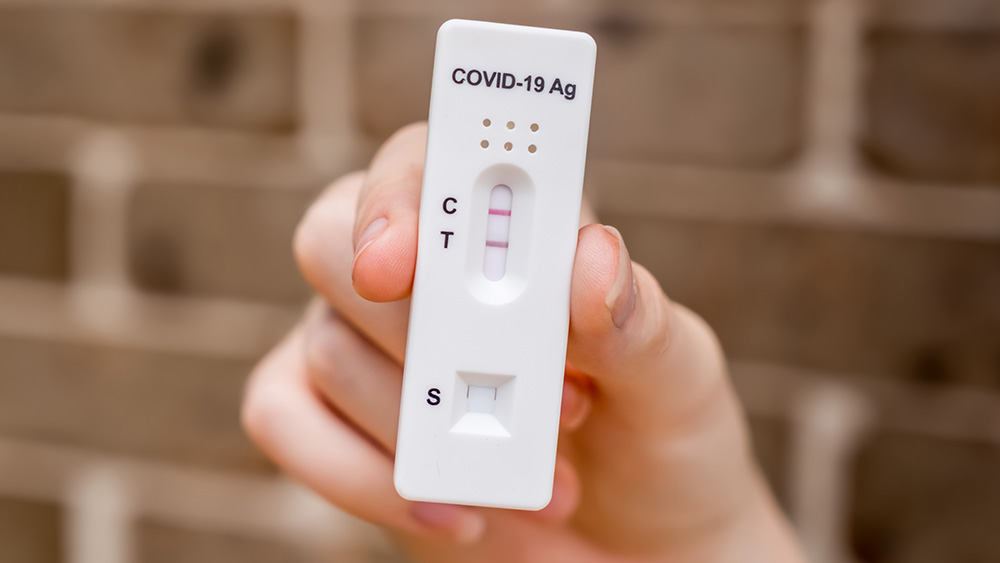
In a study, rapid antigen tests were able to recognize N protein mutations in past and present SARS-CoV-2 variants, as well as more than 99% of potential future variants.

In a study, rapid antigen tests were able to recognize N protein mutations in past and present SARS-CoV-2 variants, as well as more than 99% of potential future variants.
What you need to know
Over time, many new variants of SARS-CoV-2 (the virus that causes COVID-19) have arisen, and more can be expected in the future. The rapid antigen tests in use today were developed based on the original SARS-CoV-2 strain. There has been concern that future variants may escape detection by rapid antigen tests.
In a study funded by NIH’s Rapid Acceleration of Diagnostics (RADx®) Tech program, a research team found that commercially available rapid antigen tests can detect past and present variants of concern. The team also developed a method for measuring how potential viral mutations may affect test performance in the future.
How do rapid antigen tests work?
Rapid antigen tests detect proteins made by SARS-CoV-2, known as antigens. The tests generally detect these antigens the same way our immune systems do — with antibodies that have been designed and manufactured for this purpose. Most antigen tests target a protein called the nucleocapsid protein (N protein). Some target the spike protein. Many of the commercially available tests use two or more different antibodies.
As the virus mutates over time, the individual amino acids in the long string that makes up the N protein could be replaced with other amino acids. Some of those changes could mean that the antibodies in the rapid tests won’t bind to the protein anymore.
What did the researchers do?
The researchers made a huge library of different versions of the SARS-CoV-2 N protein. Their library had nearly 8,000 single amino acid substitutions, representing more than 99.5% of all possible mutations of the N protein.
Next, they measured how those N proteins interacted with 17 different antibodies used in 11 commercially available rapid antigen tests. For each of the 17 antibodies, the researchers documented which mutations to the N protein affected the antibody’s ability to recognize the protein.
The researchers also tested rapid antigen tests against samples from COVID-19 patients who had been infected with a number of variants, up to Omicron BA.1.
What did they learn?
The findings show that all 17 antibodies used in the rapid antigen tests were able to recognize N protein mutations in past and present variants of concern. Because the researchers tested the antibodies against nearly all possible N protein mutations, rapid tests should be able to recognize future viral variants as well. The rapid tests also worked on samples from patients with known SARS-CoV-2 variants.
Why is this research important?
Rapid antigen tests are an important tool for slowing the spread of COVID-19. When people know they are infected, they can take extra measures to avoid spreading the virus to others. The information from this study can help flag tests that might not recognize a particular new SARS-CoV-2 variant.
The researchers looked at the effects of individual mutations, but many variants of concern have multiple mutations to the N protein. Future research could evaluate how multiple N protein mutations affect the ability of antibodies to recognize the protein.
Where can I go to learn more?
-
A research team funded by NIH has identified potential mutations that may affect test performance in the future.
Exploring a New Approach to Universal Vaccines Against COVID-19
-
Researchers are considering the N protein as a target for vaccines against future SARS-CoV-2 variants.
In Vitro Diagnostics EUAs — Antigen Diagnostic Tests for SARS-CoV-2
-
The U.S. Food and Drug Administration has authorized many SARS-CoV-2 antigen tests for emergency use.
Sources
Frank, F., Keen, M. M., Rao, A., Bassit, L., Liu, X., Bowers, H. B., Patel, A. B., Cato, M. L., Sullivan, J. A., Greenleaf, M., Piantadosi, A., Lam, W. A., Hudson, W. H., & Ortlund, E. A. (2022). Deep mutational scanning identifies SARS-CoV-2 nucleocapsid escape mutations of currently available rapid antigen tests. Cell, 185(19), 3603–3616.e13. https://doi.org/10.1016/j.cell.2022.08.010

News and Stories
Read stories about the efforts underway to prevent, detect, and treat COVID-19 and its effects on our health.
 An official website of the United States government
An official website of the United States government

